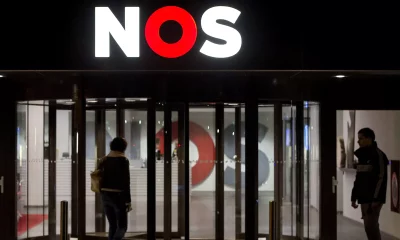As an entrepreneur and rental business owner, you are always looking ahead for growth opportunities. Of course, he’s already figured out how to start a rental business, but now it’s time to figure out how to scale it up. Expansion is deliberate, long-term growth that puts you in control of how and when you grow your rental business.
To grow your business sustainably, you must always have a plan in mind. You must also be prepared to face any challenges that come your way as you grow up. This will make the difference between a sudden spike in bookings and smooth growth over time combined with excellent customer service.
How do you know when you are ready to grow?
Growing your rental business is not just about having the right plan, but getting the timing right. For example, if you try to grow too fast, you may find yourself with expenses you can’t afford or with nonessential employees. On the other hand, you could find yourself unable to service your customers’ bookings if you don’t scale linearly.
Therefore, you should only try to expand your rental business if you are prepared to manage a larger operation. Often, expanding a business requires far more time, resources, and expertise than you are prepared to handle. It’s exciting to watch your rental business grow, but you need to keep a cool head to maintain long-term growth.
You can try asking yourself the following:
- Can you afford to invest in additional resources?
- Do you need more employees?
- Having trouble keeping up with bookings?
- Do you have room in your life to spend more time on your business?
- Are you prepared to make strategic decisions?
- Would you benefit from outside help?
Also, you need to think about the impact of increasing your rental inventory, as it can be more difficult to manage and the risk of losing product is greater unless you use a system to manage it. This can be done with barcodes, QR tags, and other methods of tracking your assets.
It can be exciting to think about growth, but it’s important to remember that some small businesses are meant to be just that. It’s okay to keep your side business separate from your full-time job. It all depends on your priorities in life, be they personal, lifestyle, or financial.
Six steps to expand your rental business
There is no set formula for growing a rental business because each business and its founder have unique strengths and challenges. For example, scaling a bike rental business will be different than scaling an event rental business. However, there are some common strategies you can consider to help you head in the right direction.
1. Make a growth plan
The first thing you need to grow your rental business sustainably is to create a business plan. This will help you understand your business and what you need to work on in order to make it grow. Of course, there are many ways to format your business plan, but it has to answer the questions “where do we want to be?” and “how to get there?”.
Done correctly, you should end up with a strategic marketing plan accompanied by a forecast of your future and an outline of your growth plans. Once you’ve determined where you want your business to be and how you’re going to get there, you can use the following steps to create an action plan.
2. Evaluate your product sourcing
One of the most significant impacts of expanding your rental business is a higher volume of bookings and therefore the need for more stock to meet demand. This means being able to quickly add more stock to your inventory without breaking the bank. So you need to assess where you source from and whether it is sustainable as you grow.
For the cheapest and most rented products, you need a supplier located close to you that allows you to get new stock quickly. While for items that are growing in demand, you need to make sure that your supplier can supply the products in a reasonable amount of time. This can be difficult for cameras and other electronic equipment.
Also, it may be good to think about subletting to other local rental companies. By making an agreement, you can share your stocks and ensure you always have products on hand in case your stocks exceed your inventory capacity.
3. Hire strategically
Until this point, you may have run your business independently or with a couple of part-time employees. However, you need to be able to cope with a growth in bookings without placing an undue burden on you. If you decide that you need to hire new staff, you need to determine where that person would be most effective.
For example, you may currently handle marketing, customer service, and stock management yourself. In this case, it might be time to free yourself from one of these tasks so you can continue to focus on growth while still getting the work done. A critical strategic hire could mean the difference between growing sustainably or falling flat on its face.
4. Outsource to speed up
In some cases, it may not make sense to hire an employee, and outsourcing tasks can help streamline your rental business. For example, it can be difficult to effectively market your business while dealing with all other day-to-day tasks. Hiring an agency to handle your marketing can be a great idea and will often cost less than hiring a new employee.
Marketing and website optimization are the areas that benefit the most from outside help as they are time consuming and challenging to master on your own. Time that you would spend learning and deploying website marketing and optimization can be better spent on other aspects of your business. Plus, you won’t lose control as the agency will work for you to meet your needs.
5. Automate as much as possible
To save time and make scaling more accessible, you should use tools that automate aspects of your workflow. They can be simple solutions, like adding a chatbot to your Facebook to handle direct customer inquiries so you don’t have to take time off work to answer them. This is not as scary as you might think, and customers are used to communicating with them.
A couple of examples are on Booqable, where inventory is allocated and reservation confirmations are automatically sent. This helps you spend less time on administration and more time focusing on other aspects of running your business. These are just a couple of ways Booqable helps streamline your workflow and reduce stress. Plus, online reservations allow you to automate the reservation process, so you’ll spend less time responding to emails and calls.
6. Look for new income opportunities
The goal of scaling is to increase revenue. While this can be accomplished through marketing and other ways explained above, you can also use this time as an opportunity to pursue new revenue growth opportunities. These can be anything from adding tours to your inventory to new products that complement your current rental business.
You can also think about opening a second location in another city or area. You’ve already worked out the formula for success in your current rental business, so it’s easy to duplicate it in another city. Of course, this requires a significant investment, but you can always start small and share the inventory with your current store.



















